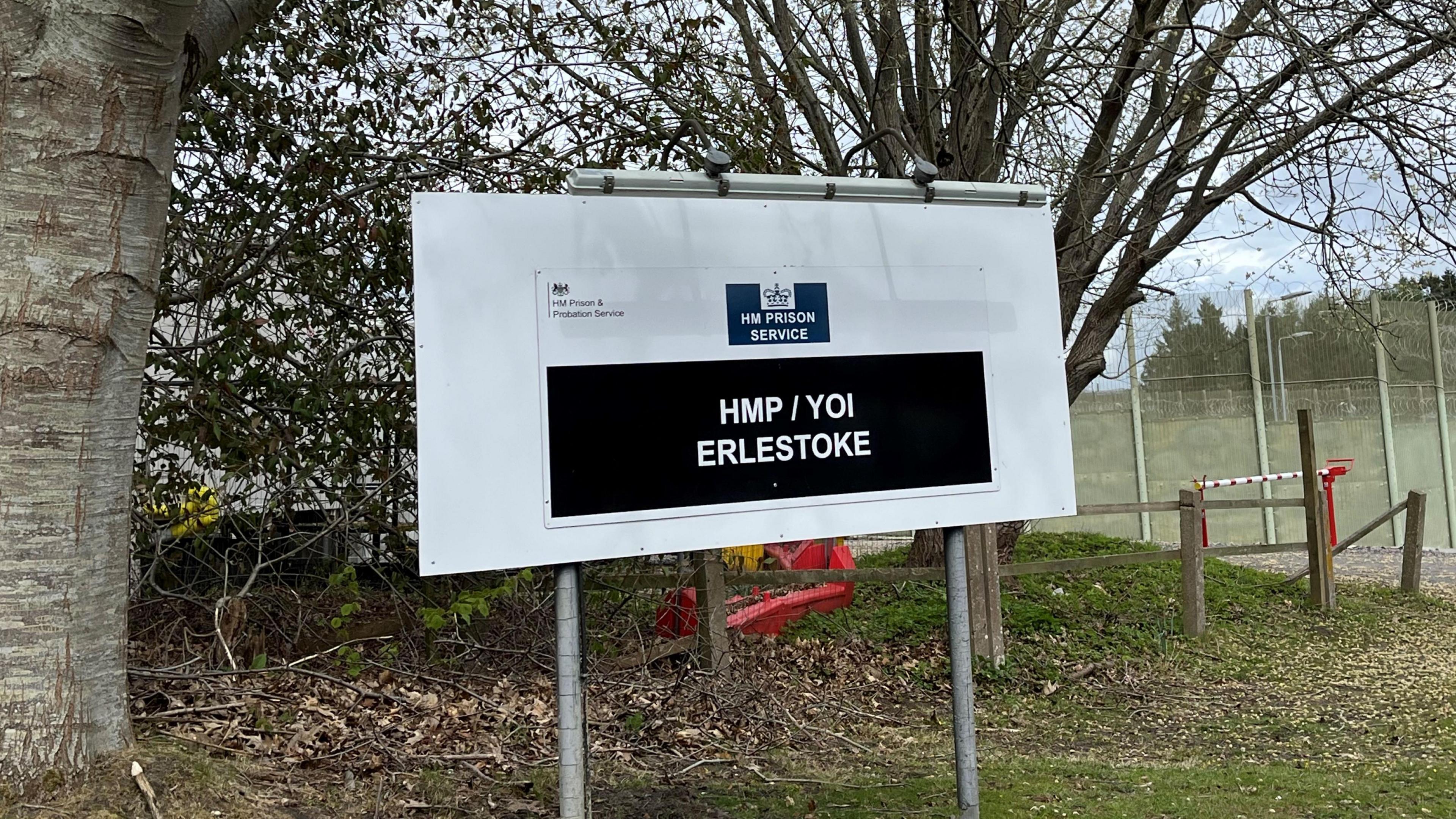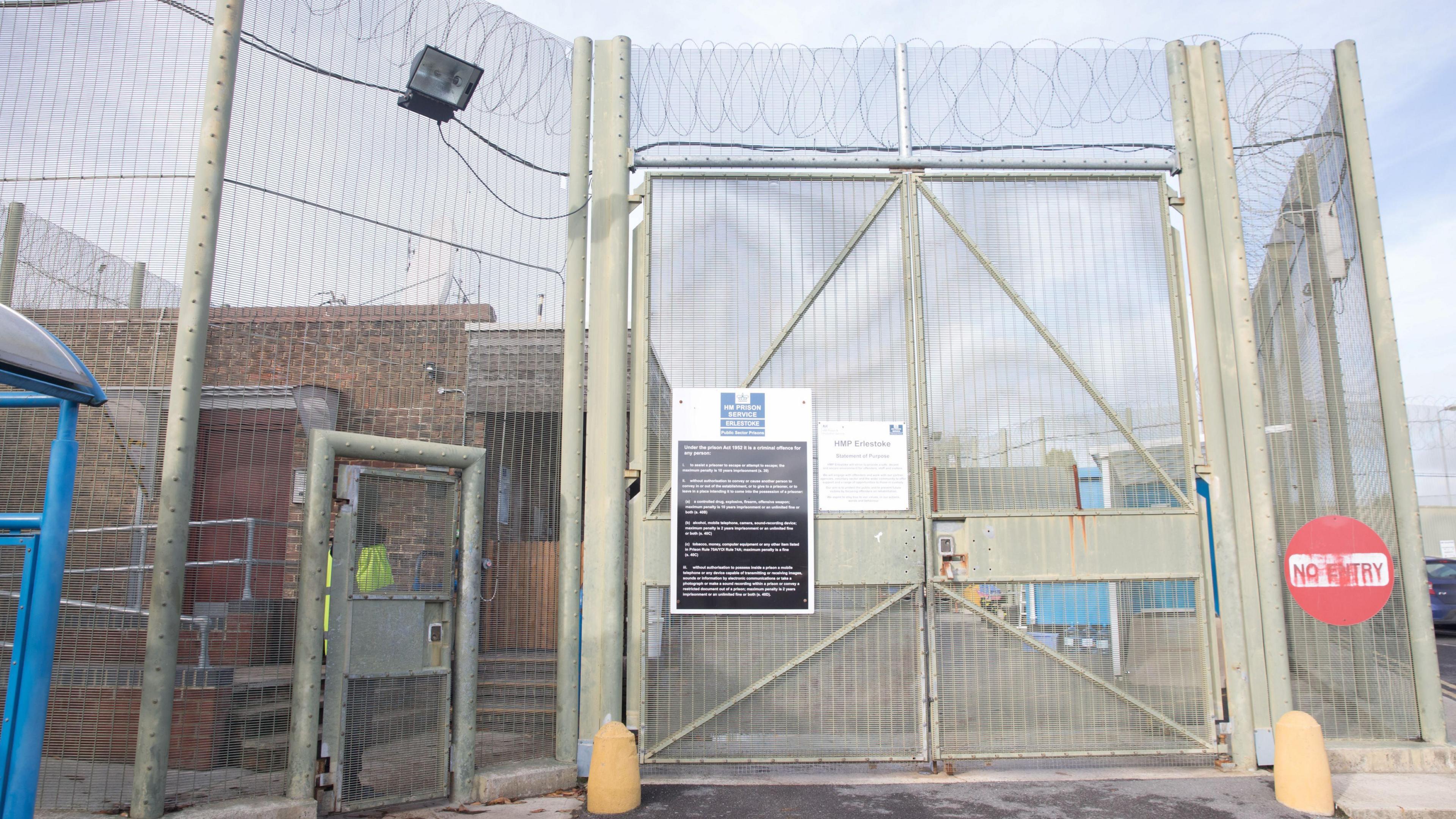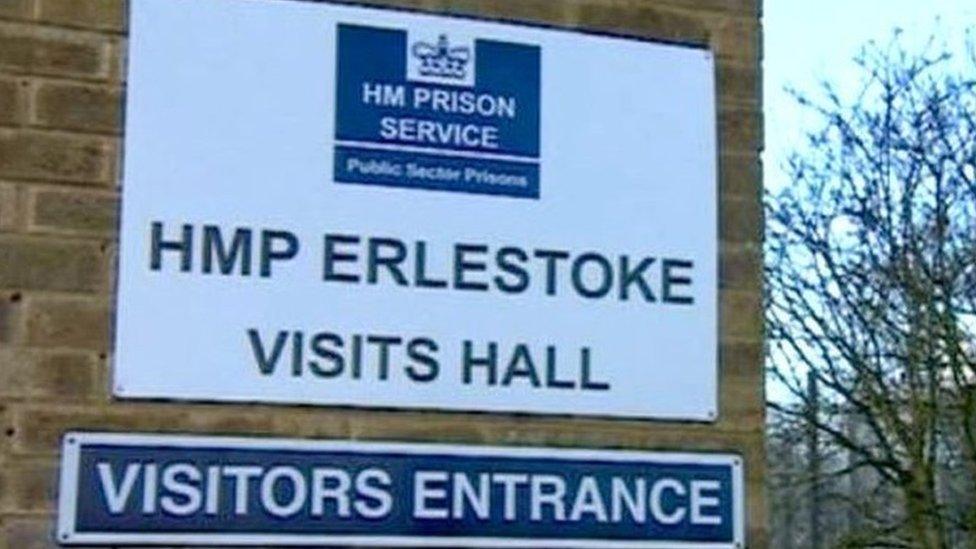Prisoners left without essential medicine - report

The report found the health needs of elderly and frail patients were not being met
- Published
Concerns have been raised about overcrowding and healthcare at a prison where a watchdog says staff are under "extreme pressure".
The Independent Monitoring Board (IMB) said "prisoners transferring to HMP Erlestoke are too frequently left without essential medicines on arrival, sometimes for a significant period".
In its annual report for 2024-25, it also said the health needs of "elderly and frail patients" at the Wiltshire prison had "not been met".
A Ministry of Justice (MoJ) spokesperson said it was not responsible for healthcare in prisons and "HMP Erlestoke operates within its agreed operational capacity levels".
HMP Erlestoke is a category C men's prison which - like all detention facilities in England and Wales - is monitored by the IMB.
The body is tasked with ensuring the just and humane treatment of those held in custody and makes frequent visits.
The IMB did acknowledge self-harm incidents and staff turnover at the site near Devizes had decreased during the year.
But it found the prison was "ill-equipped to cater for the needs of the elderly in declining health", citing an incident in which a prisoner who suffered from faecal incontinence had no-one to change his incontinence pads out of hours and was eventually transferred to hospital as a result.
'Complex problem'
The report said the prison had received 584 new arrivals, compared to 316 releases, stretching the facility's ability to cope with overcrowding.
The IMB said "three planned small secure house blocks" to help increase capacity were "on hold".
It also found only 380 of 540 targeted sessions per month, during which key workers meet with prisoners, had been achieved.
Laura Bell, chair of the IMB at the facility, said prison offender managers - who helped inmates prepare for release and put them in education courses which addressed their behaviour - were overloaded due to changes in release criteria.
"Because of all these changes to the release system, they've been having to do a lot of recalculation of sentences.
"Lots of people will have had more than one offence, it's a really complex bit of work, and important to get it right.
"They are doing that so much that they are having less contact with their main caseload, and that's had an impact," she added.
Ms Bell said healthcare was "a very complex problem within a prison, with a huge number of people who have massive mental health problems".
She emphasised Erlestoke had an "amazing neurodiversity manager who helps individuals and officers understand" people's needs.
The MoJ said the government had "inherited a prison system in crisis" but was reforming sentencing to "focus on reducing reoffending and cutting crime".
It added healthcare in prisons was a "matter for the NHS or private healthcare provider".
Get in touch
Tell us which stories we should cover in Wiltshire
Follow BBC Wiltshire on Facebook, external, X, external and Instagram, external. Send your story ideas to us on email or via WhatsApp on 0800 313 4630.
Related topics
- Published3 June

- Published5 July 2022
